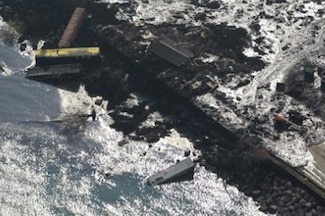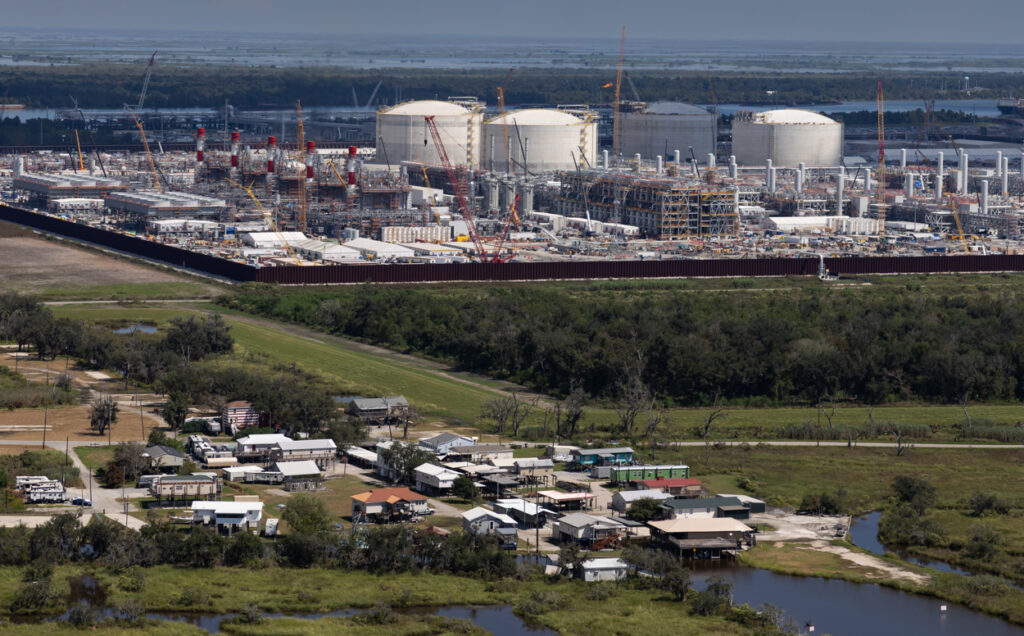On Monday, a bluff surrounding a Milwaukee, Wisconsin-based power plant collapsed, sending a cascade of debris and coal ash waste from the power plant into Lake Michigan. No injuries were reported by We Energies, the company who owns the power plant, but the environmental assessment will likely be less optimistic. We Energies, a subsidiary of Wisconsin Energy Corporation (NYSE: WEC), has confirmed that the debris that made it into the river likely contained coal ash.
As of Monday afternoon, a “fuel sheen” appeared on the surface of Lake Michigan as a result of the bluff collapse. Cleanup crews from Clean Harbor were contracted by We Energies to help contain the spread of the sheen, and will be deploying about 1,500 feet of boom to help contain the waste on the surface. Shortly after the accident, residents living up to a mile away from the site along the lake were already reporting debris washing onshore.
As we have reported extensively in the past, coal ash contains countless toxic substances, including mercury, hexavalent chromium, arsenic, and cadmium. It has also been reported to be more radioactive as nuclear waste. In spite of these findings, the EPA has yet to issue any firm stance on whether or not coal ash will be regulated as a “toxic waste,” partly due to the fact that the coal industry has unleashed a cadre of lobbyists to Washington to fight to protect their coal ash interests.
The EPA’s delay in issuing a ruling on coal ash has allowed the Republican-controlled Congress to gain the upper hand on the issue. In early fall 2011, the U.S. House of Representatives passed legislation that would prohibit the EPA from regulating coal ash, and preventing them from classifying the substance as “hazardous.” Instead of EPA regulations, the bill would allow states to issue their own standards on coal ash and prevent any federal standards.
The House legislation was put forward by Republican West Virginia Congressman David McKinley, who has received more than $275,000 from the mining industry during his four years in Congress, making them his highest single donor industry, according to the Center for Responsive Politics.
McKinley said that the regulation from the EPA would result in a loss of jobs in the coal industry, yet estimates show that the EPA’s standards would actually create as many as 28,000 new jobs in America.
Less than a week after the House bill passed, the U.S. Senate took up similar legislation sponsored by Republican North Dakota Senators John Hoeven ($147,000 in campaign contributions from the mining industry) and Kent Conrad ($827,000 in campaign contributions from the energy sector.)
Two Democratic Senators, Joe Manchin and Jay Rockefeller from West Virginia also signed on as co-sponsors of the bill. Manchin has received $367,000 from mining interests throughout his career, and Rockefeller has received $288,000 from mining companies.
The Senate bill would enact the same measures as the House bill, although the Democratic majority in the Senate is unlikely to pass the bill, or even bring it to a vote, and President Obama has vowed to veto the bill.
The new spill in Milwaukee could change the tone in Washington regarding the regulation of coal ash, but that will remain to be seen. After all, a disastrous incident in Tennessee nearly three years ago – where 1.7 million cubic yards of coal ash spilled into the environment – hasn’t changed the direction of coal ash legislation.
Subscribe to our newsletter
Stay up to date with DeSmog news and alerts







